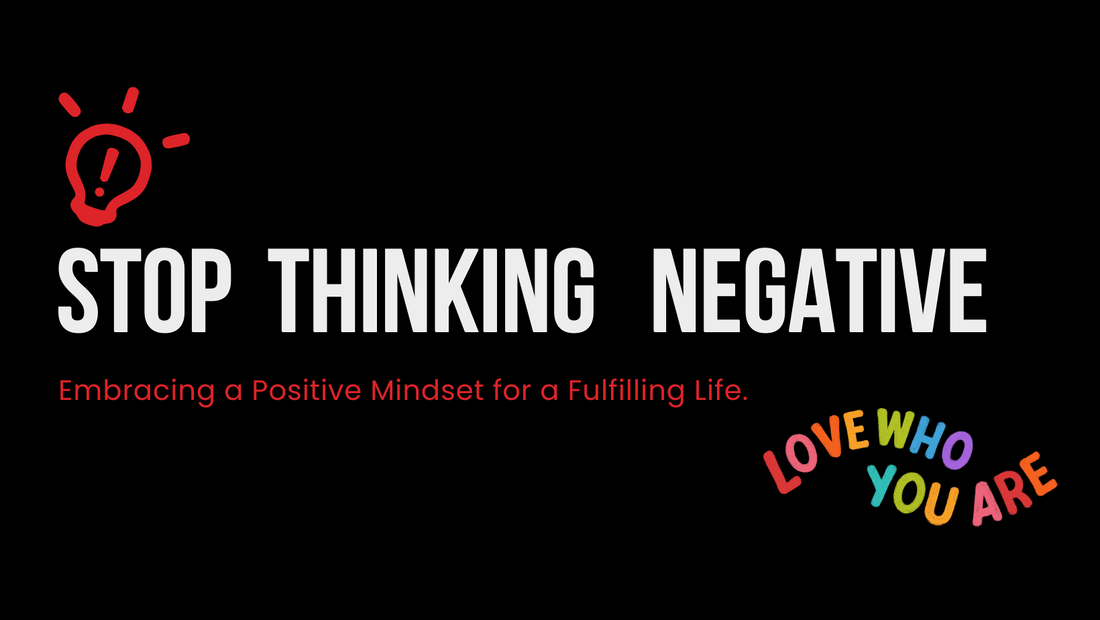
Stop Thinking Negative
Share
In a world filled with challenges and uncertainties, it is easy to fall into the trap of negative thinking. However, nurturing a positive mindset can have profound effects on our overall well-being, relationships, and success. By consciously making an effort to stop thinking negatively, we can transform our lives and unlock our true potential. In this article, we will explore the importance of adopting a positive mindset and provide practical strategies to help you break free from negative thought patterns.

The Power of Positive Thinking
Positive thinking is more than just wishful optimism; it is a mindset that allows us to approach life's ups and downs with resilience and grace. Research suggests that a positive outlook can enhance mental and physical health, increase creativity and problem-solving abilities, and improve relationships. By focusing on positive aspects and solutions rather than dwelling on setbacks, we can cultivate a mindset that propels us forward, enabling us to overcome challenges and achieve our goals.
Identifying Negative Thought Patterns
To break free from negative thinking, it is essential to first identify and acknowledge our negative thought patterns. These patterns often manifest as self-doubt, excessive worry, or a tendency to anticipate the worst outcomes. Pay close attention to your internal dialogue and emotional responses in different situations. Are you overly critical of yourself? Do you tend to catastrophize minor setbacks? Recognizing these patterns is the first step toward replacing them with positive alternatives.

Challenging Negative Thoughts
Once you have identified negative thought patterns, it is time to challenge and reframe them. Ask yourself if there is evidence to support your negative beliefs or if you are making assumptions based on past experiences. Replace negative thoughts with more realistic and positive ones. For example, if you catch yourself thinking, "I will never succeed," challenge it by reminding yourself of past accomplishments and focusing on your strengths. By consciously replacing negative thoughts with positive affirmations, you can gradually shift your mindset toward a more optimistic outlook.
Cultivating Gratitude and Mindfulness
Practicing gratitude and mindfulness can be powerful antidotes to negative thinking. Cultivate a daily gratitude practice by reflecting on three things you are grateful for each day. This exercise helps rewire your brain to focus on the positive aspects of life. Additionally, engage in mindfulness techniques, such as meditation or deep breathing, to bring your attention to the present moment and let go of negative rumination. By grounding yourself in gratitude and mindfulness, you can counteract negativity and cultivate a more peaceful and positive inner state.

